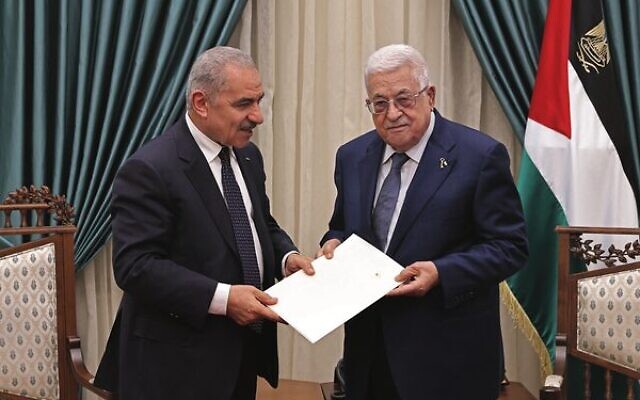Preconditions for a Palestinian state
Unilateral recognition would seriously impede our ability to engage with Israel.

As the war in Gaza moves towards a conclusion there’s been renewed discussion regarding the recognition of a state of Palestine without waiting for Israeli approval.
In late January, Lord David Cameron, the British foreign secretary, suggested that the United Kingdom might unilaterally recognise Palestinian statehood. Two weeks later, French President Emmanuel Macron made a similar statement.
“Recognising a Palestinian state is not a taboo for France,” he said. There’s even been calls for the United States to go down the same path, noting that President Joe Biden has the power to recognise a sovereign Palestinian state through executive action. President Harry Truman exercised that power when he unilaterally recognised Israel’s statehood in 1948.
Australia has refrained from recognition, viewing the bifurcation of Palestinian territories between Hamas-controlled Gaza and the Palestinian Authority-administered West Bank as a legal and practical impediment. We’ve also preferred to see this resolved in the context of a directly negotiated outcome between Israel and the Palestinians, including agreement on final borders.
Equally as important a consideration is that in astute diplomatic tradecraft, it’s folly not to make positive use of leverage. Recognition leverage is also being talked about in terms of securing Israel’s commitment to the two-state solution and an agreed path to that outcome.
As preconditions, Australia should insist on a demilitarised Palestine, recognition of Israel, renunciation of violence and acceptance of existing agreements. Only parties signed up to a “peace charter” along these lines would be eligible to register for elections. There would then need to be agreement to a number of security, capacity building and accountability measures. All international aid and development funding would be contingent on this. The so-called right of return must be accepted as only applying to the new Palestinian state.
Root and branch reform of the Palestinian Authority will be required. Great pressure is being brought to bear in this respect by the international community and Palestinians. This is evident in the recent resignation of the PA government to, as the US State Department has stated, “reform and revitalise itself”. Palestinians have grown deeply disillusioned by the PA’s rampant corruption and repressive administration.
The PA is spending a third of its budget on paying 40,000 idle public servants in Gaza, including 19,000 police. These people were all removed from their positions in the overthrow by Hamas of PA administrative agencies in 2007. This human resource pool might be a good place to start the administrative rebuilding of Gaza.
Functional and efficacious governance regimes and a trusted civil service must become a fundamental focus. While the PA has nominally signed on to the major human rights instruments, they’re a long way from meeting these standards. This is evidenced by its misuse of the death penalty, torture, oppression of LGBTQIA+ people and the situation of women.
Until elections can be reliably held, it should be required that PA “departments” be a partnership of qualified Palestinian technocrats and international expert advisers. We can see the nascent acceptance of this approach with the appointment by President Abbas of the new Prime Minister Mohammad Mustafa. Mustafa has solid credentials as an economic expert.
Predictably the appointment has been rejected by Hamas, underlining the need to exclude them from the PA government. Accountability measures would be need to be embedded for a transition. Each department would implement programs for the ethical and technical training of cadets. Security programs would be instituted for monitoring corruption, along with terrorist and foreign intelligence connections.
Following the decommissioning of the UN Relief and Works Agency (UNRWA) a new international body should be established in partnership with countries such as Australia. This new body would manage donor support, reconstruction, relief and capacity building. Palestinian staff would be vetted, mentored and monitored. It would provide oversight assurance that relief supplies are getting through to the right people and reconstruction funds properly accounted for.
A partnership of countries, including Australia, would take on the shaping of a sound, community trusted police service and judicial system, with thorough human rights training.
Agreement to international oversight and monitoring of the education system, removing dehumanising, racist or violence conditioning would be critical. This is another potential area for Australian involvement.
Israel would be required to start dismantling settler outposts, which could be encouraged with international assistance. Progress in PA capacity would be matched by Israel with the steady winddown of military administrative mechanisms.
Australian diplomacy should be directed at ensuring that formal recognition is used to leverage the building of a rigorous peace with prosperity and security. If the opportunity to use this leverage is wasted the Palestinian and Israeli divide will be doomed to a perpetual cycle of violence.
Any unilateral recognition by Australia would seriously impede our ability to engage with and influence Israel, a state we helped found. It would give us the appearance of clueless dilettantes.
Mike Kelly is the co-founder of the Labor Friends of Israel group. Anthony Bergin is a senior fellow at Strategic Analysis Australia. A version of this article appeared in The Australian.

comments